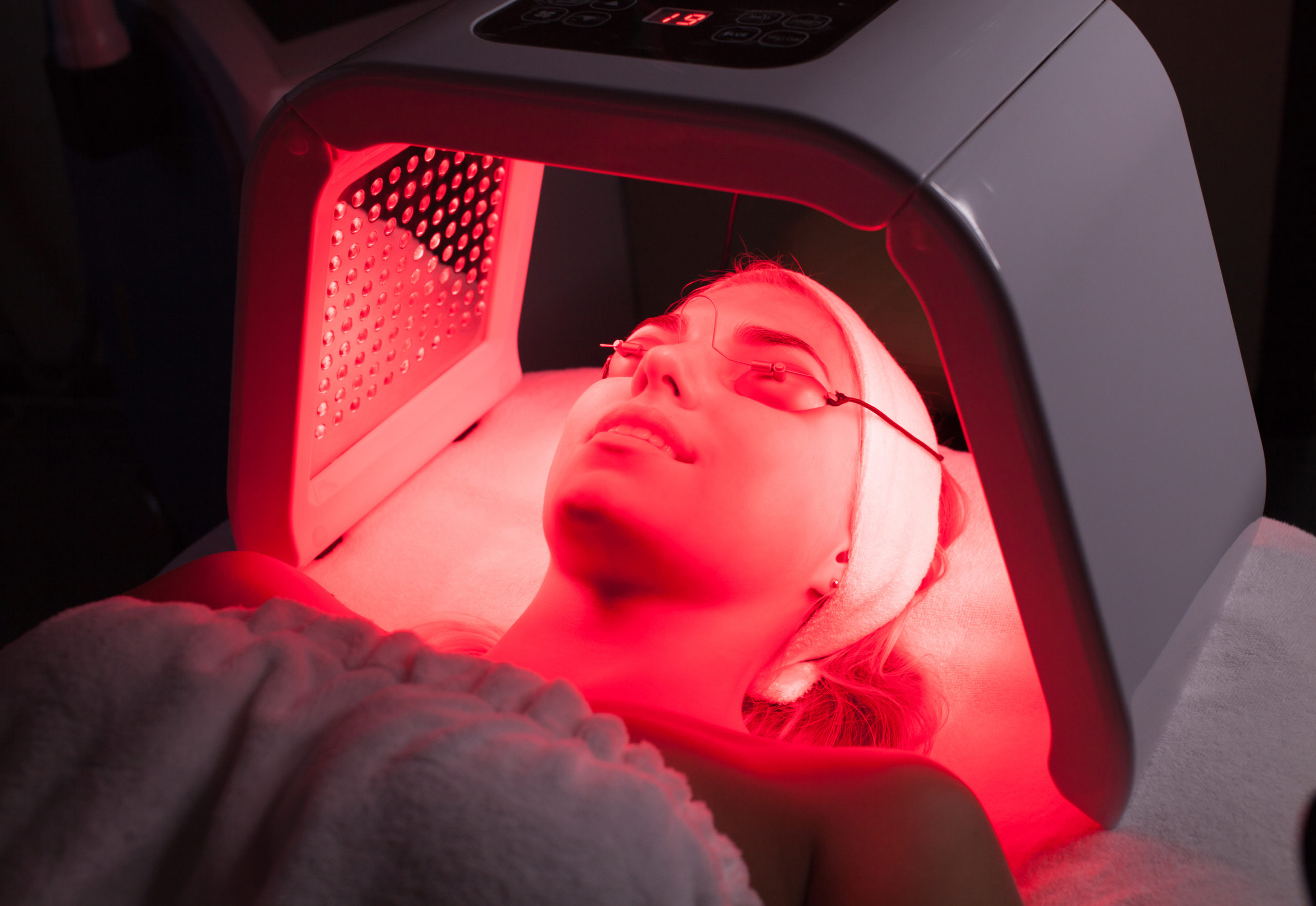Finding the perfect skin care routine can take weeks, months or even a lifetime. Some products may work wonders, while others result in more breakouts than ever—skin care is all about trial and error. If your lotions, serums and creams aren’t cutting it, LED red light therapy may be for you.
What Is Red Light Therapy?
Red light therapy, also known as RLT, is a treatment utilizing “low wavelength red light” to treat wrinkles, scars and acne, according to the Cleveland Clinic.
LED lights made its debut in the 1960s, but its abilithttps://health.clevelandclinic.orgy to treat skin issues is a recent breakthrough, according to Harvard Medical School. Before making its way to the skin care market, NASA experimented with RLT on plant growth, and it has since been medically approved as a form of photodynamic therapy, where it activates a light-sensitive drug that destroys cells in conditions such as skin cancer, warts and psoriasis.
What Does It Do?
RLT targets skin cells called fibroblasts. These affect collagen production, which is a connective
tissue protein that determines your skin’s ability to recover from damage. It’s believed that red light has the power to “undo” damage to the skin, according to Harvard Medical School. It also targets the mitochondria in cells, famously known as the “powerhouse,” giving them more energy to repair and rejuvenate skin, according to Cleveland Clinic.
By encouraging the production of collagen, targeting fibroblasts and upping blood circulation throughout the skin, RLT has the power to treat a variety of skin issues. These include fine lines, age spots, acne, skin texture, scars, eczema and stretch marks. Although RLT is a newer form of skin care, studies show both promise and potential.
Is It Safe?
Although the ultraviolet light from the sun, like UVA and UVB rays, can have harmful effects on skin, red light is not dangerous when used properly. In fact, according to the Cleveland Clinic, this remedy can be more gentle than some topical treatments, and it is nontoxic and noninvasive.
While you can purchase RLT devices online, they may be less powerful than dermatologist-level tools. If you are interested in RLT, visit your dermatologist and discuss if this innovative treatment is right for you.
Related Articles:
Blue light glasses: are they worth the hype?

